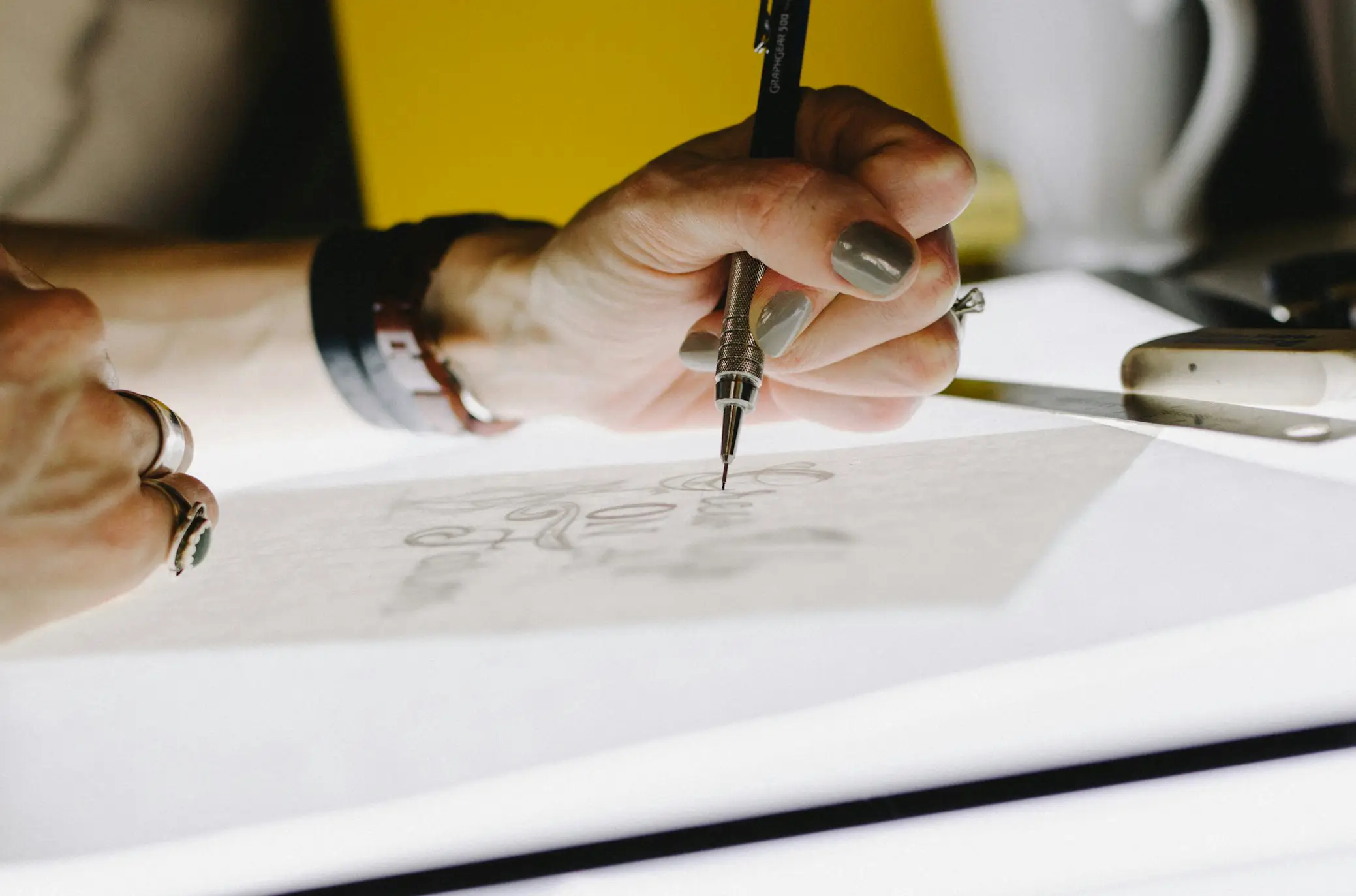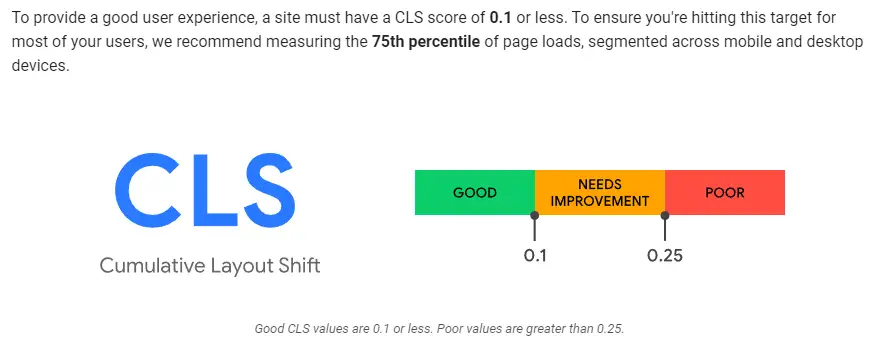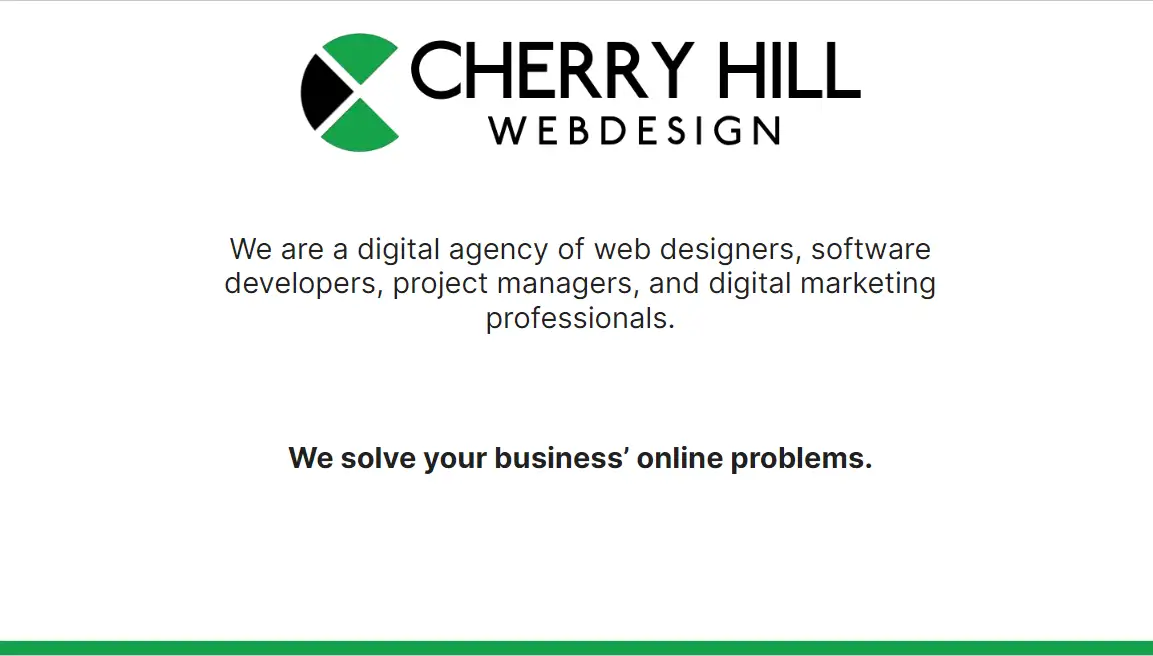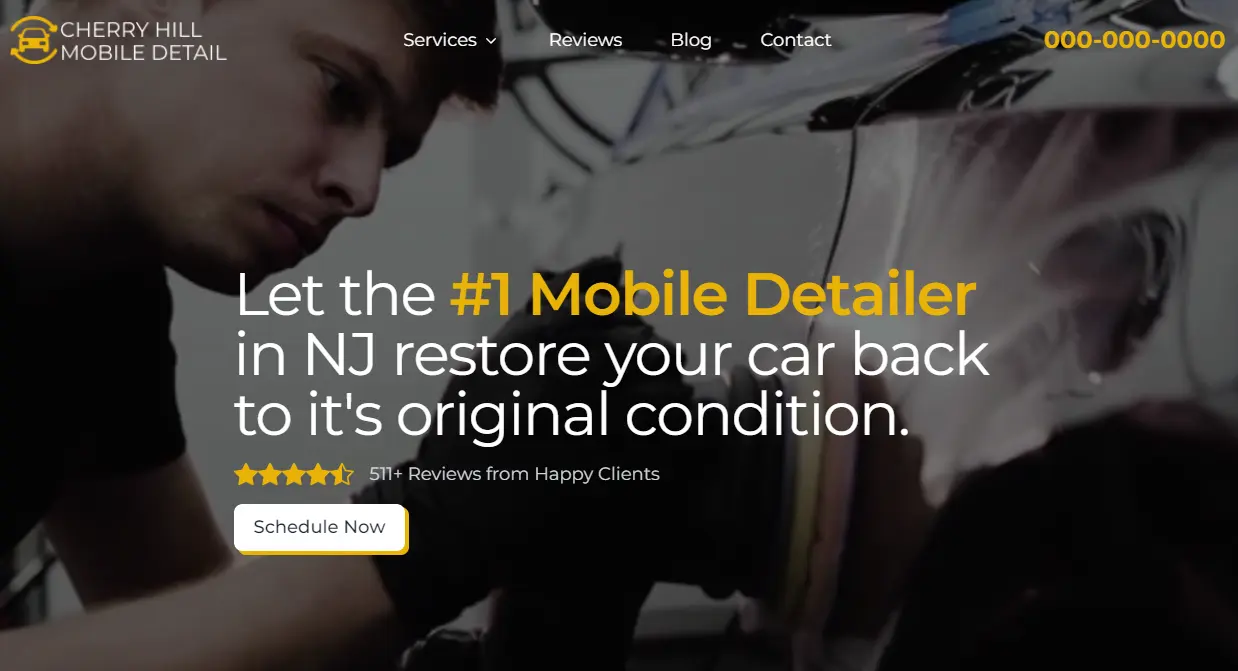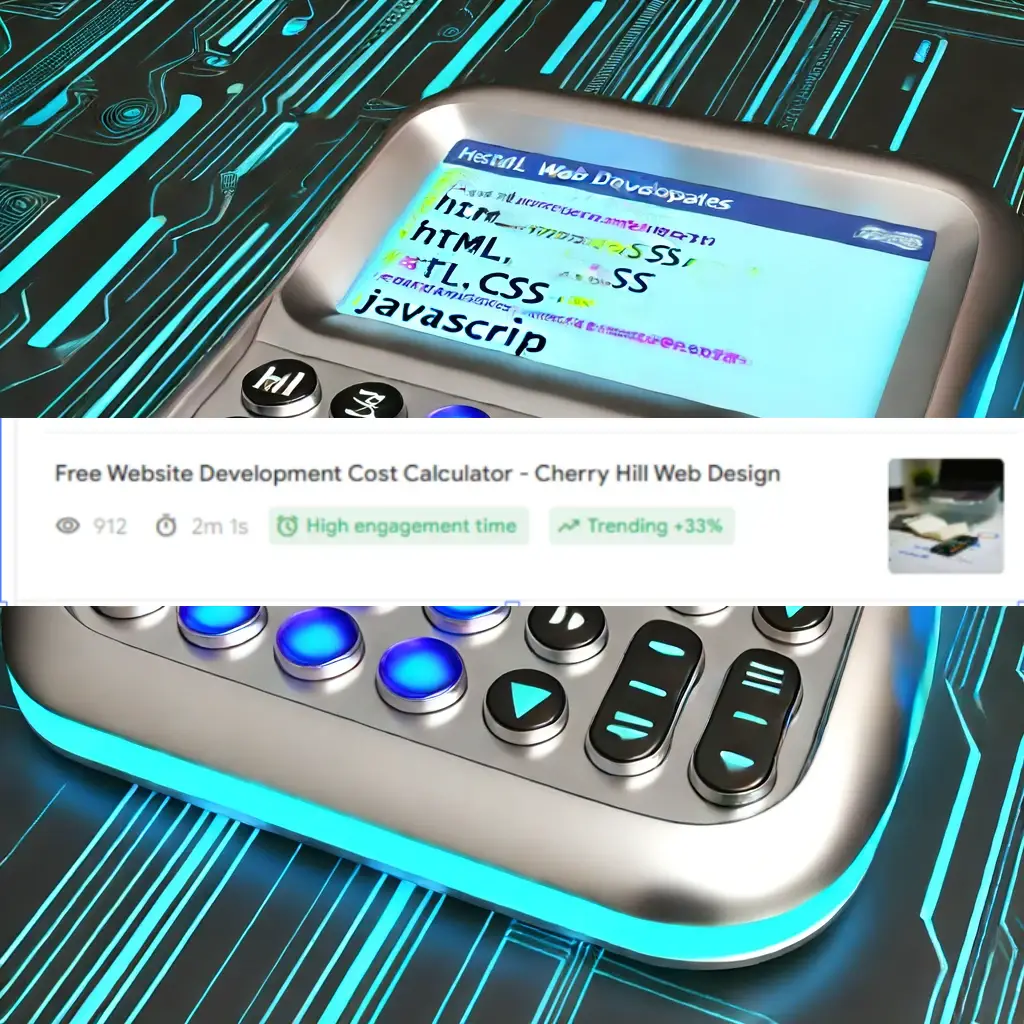
10 Ways to Find a Website Designer: Effective Tips and Strategies
Finding the right web designer can be a challenging task for any business owner or individual. With the increasing importance of having a strong online presence, it's crucial to select a professional who not only has the technical skills but also understands your vision and needs. This article will guide you through the process.

Choosing the right web designer ensures your website is both functional and visually appealing. This guide covers ten effective strategies to find a web designer who meets your unique requirements. Whether you're looking for a freelance expert or an established agency, these tips will help streamline your search and make an informed decision.
1) Check Portfolio Websites

One of the best ways to find a website designer is to look at portfolio websites. These sites showcase the designer's work and help you understand their style and skills.
There are many portfolio websites available that display different design projects. By browsing these examples, you can see what the designer is capable of and if their style matches what you're looking for.
Some designers prefer a one-page format, as it makes their work easy to scroll through and view. Sites like Ivette Felix Uy highlight how a well-organized layout can make a portfolio stand out.
Another example is Fanore Web Design & Consulting, which uses a mobile-first design approach. This means that the website looks great on a smartphone, which is crucial for reaching a wide audience today.
Using free portfolio websites can also be a good option. For instance, many designers use Dribbble to share snapshots of their work. This can give you an idea of their creative process and how they handle different design challenges.
Checking portfolio websites is a straightforward way to find a capable website designer who fits your needs.
2) Read Client Reviews

Client reviews are valuable when looking for a website designer. They offer insights into the designer's work quality and reliability. Reviews can be found on search engines or specialized review sites like Clutch.
Pay attention to detailed comments regarding communication skills and meeting deadlines. These aspects are crucial to ensure smooth collaboration. Positive feedback on these points can indicate a good fit.
Look at the reviews for similar projects. This helps in understanding how well the designer can handle your specific needs. For instance, if you need an e-commerce site, check reviews from clients who required similar work.
Filter out biased reviews. Look for comments that provide specifics about the project and how the designer met or exceeded expectations. Vague reviews might not be as reliable.
Review scores can also help. High ratings generally signify satisfied clients. Yet, also consider the number of reviews—more reviews might mean the rating is more reliable.
When possible, reach out to past clients directly. They might share more detailed experiences than what they posted online. This can help you make a more informed decision.
Reading client reviews thoroughly helps in choosing a reliable, skilled web designer who matches your project's needs.
3) Ask for Recommendations

One effective way to find a great website designer is to ask for recommendations. Friends, family, and colleagues who have worked with designers can provide honest feedback and share their experiences. This can help you avoid common pitfalls and find someone reliable.
Checking with fellow business owners is also helpful. They might have contacts with designers who understand business needs and web standards. Getting insights from others in your industry can help you find a designer who fits your specific requirements.
Social media platforms can also be useful. Posting a query on LinkedIn or joining relevant Facebook groups can yield suggestions from a broader network. People often share recommendations based on their successful projects.
Remember to follow up on given recommendations by reviewing the designer’s previous work. Look at their websites and portfolios to see if their style matches what you are looking for. Don’t hesitate to contact the past clients of the designers to get firsthand reviews.
Trusting recommendations can save you time and provide peace of mind, knowing the designer has a track record of satisfied clients. It's a practical way to narrow down your options and find a talented web designer.
4) Verify Coding Skills

It's important to verify the coding skills of a web designer. They should be familiar with HTML, CSS, and JavaScript. These are the basic building blocks of most websites.
Ask for examples of previous work. Reviewing a designer's past projects will give insight into their coding abilities. Ensure they have worked on projects similar to what you need.
Conduct a technical interview. This can be as simple as asking them to explain how they would approach coding a specific feature. It helps to understand their problem-solving skills.
Consider giving a small coding test. A practical test can show their skills in action. It doesn't need to be long or complex, but it should cover the basics.
Finally, check for knowledge in responsive design. This ensures the website works well on all devices. A designer should be able to code layouts that adapt to different screen sizes.
You can find more tips on what to look for in a designer here.
5) Evaluate Design Creativity

When choosing a web designer, it's crucial to evaluate their design creativity. Look through their portfolio and see if their work stands out or looks repetitive. Creative designs should engage users and make a lasting impression.
Pay attention to how they use colors, fonts, and layouts. Unique combinations can show a designer's creativity and ability to think outside the box. It's also important to see how they balance aesthetics with functionality.
Ask the designer about their inspiration sources and design process. Creative designers should be able to explain how they come up with unique concepts. They may draw inspiration from different industries, art forms, or trends.
Feedback from previous clients can also shed light on a designer's creativity. Read reviews or ask for references to see if clients were impressed with the creative aspects of their projects. Consistent positive feedback can indicate a designer with a strong creative flair.
Finally, consider how well a designer’s creativity aligns with your brand. A great design may not be effective if it doesn’t represent your brand's identity. Ensure the creative style fits your vision and goals.
For more tips on finding a website designer, you can check out resources like Upwork's practical guide or 99designs' step-by-step guide. These guides offer detailed steps to help you in your search.
6) Look for SEO Knowledge

When hiring a website designer, it’s crucial to ensure they understand SEO. SEO, or search engine optimization, helps your website rank better on search engines like Google.
A designer with SEO knowledge can make sure your website is easy to crawl. They know how to create compelling content that answers user queries and includes valuable keywords.
Site structure is another important aspect of SEO. Designers should build an intuitive structure to improve user experience and help search engines understand your site better. This includes creating clear navigation and content buckets.
Fast load speed is key for both users and search engines. A designer should know techniques to speed up your site, such as optimizing images and reducing code clutter.
Keyword optimization is essential for attracting users and search engines. Designers should conduct thorough keyword research to identify what your audience is seeking. This ensures your site meets their needs.
Content that earns links from other sites also boosts your SEO. A designer should create share-worthy content that attracts these valuable backlinks.
To find designers with SEO knowledge, check their portfolios and ask about their SEO practices. You can look at review sites like Clutch to see client feedback on their SEO capabilities. This helps ensure you hire a designer who can build an effective, search-friendly website.
7) Assess Communication Skills

Effective communication is essential when working with a web designer. It helps ensure that the final product meets expectations and reduces misunderstandings.
Start by evaluating their responsiveness. A good designer should reply to inquiries promptly. This is a sign that they are organized and value their clients' time.
Pay close attention to how clearly they explain concepts. They should be able to outline their approach in a way that is easy to grasp, even for non-technical clients.
Ask the designer about their process. Do they set clear milestones and provide regular updates? This can show whether they have a structured workflow.
Check their reviews or ask for references to get feedback on their communication skills from past clients. Positive feedback in this area is a good indicator of a reliable designer.
Discuss your project needs in detail and see how well the designer listens and incorporates your ideas. A collaborative approach is vital for achieving the best results.
Communication skills are just as important as design skills. When evaluating a designer, ensure they excel in both areas for a successful partnership.
8) Check for Responsive Design

When looking for a website designer, it’s crucial to check their ability to create responsive designs. A responsive design ensures the site looks good on all devices, including desktops, tablets, and smartphones.
One way to test this is by using tools like ScreenFly. This tool allows you to see how a website appears on various screen sizes.
Another popular tool is Google Chrome Inspect. It is built into the Chrome browser and lets you view and test the responsiveness of any site.
Designers often use platforms like Figma. Figma supports real-time collaboration and easy sharing of designs, making it easier to see responsive layouts during the design process.
You can also try the Responsive Website Design Tester by Media Genesis. This tool checks if a site adapts well to different device screens.
Choosing a web designer who is skilled in responsive design ensures that your site will be accessible and user-friendly across all devices. This is important for user experience and can also improve your site's search engine rankings.
9) Inquire about Maintenance Services

It's important to ask about maintenance services when hiring a web designer. Websites require regular updates and fixes.
A web designer who offers maintenance services can save you time. They can handle software updates, security patches, and content changes.
Inquiring about these services ensures your website stays functional and secure. It also helps to know the cost and frequency of these services.
Make sure the designer provides clear terms for ongoing support. This can prevent unexpected issues and costs.
10) Review Previous Projects

To find a reliable website designer, start by looking at their past work. Reviewing their portfolio gives insights into their design style, creativity, and technical skills. This helps determine if their work aligns with your vision.
Focus on projects similar to yours. If you need an e-commerce site, see if they've designed successful e-commerce platforms before. This ensures they have relevant experience.
Check the functionality and user experience of the sites in their portfolio. Navigate through different pages and features to see how smoothly they work. This reveals the quality of their coding and attention to detail.
Pay attention to the visual appeal. A professional designer should create visually appealing and user-friendly websites. Look at the layout, color schemes, and overall aesthetics.
Read case studies if available. These often explain the designer’s process, client goals, and the solutions provided. This can provide deeper insights into their problem-solving abilities and project management skills.
Utilize reviews and testimonials from previous clients. Positive feedback is a good sign of a designer’s reliability and professionalism.
Reviewing previous projects is a key step in finding a website designer that fits your needs and can deliver quality work. For more details, explore this guide on finding a good website designer.
Evaluating Professional Portfolios

When evaluating a professional web designer’s portfolio, it’s important to look at specific aspects like design quality and consistency. This helps in determining if the designer can meet your needs.
What to Look for in a Portfolio
A professional portfolio should showcase a variety of projects. Each project should highlight different skills and styles. Look for designs that align with the type of website you need.
Focus on user experience (UX). Check if the designs are easy to navigate and user-friendly. Poor UX can drive visitors away from your site.
Consider aesthetics. The visual appeal of a website is crucial. Look for clean, modern designs that are visually engaging.
Also, review client testimonials. Positive feedback from previous clients can be a strong indicator of a designer’s reliability and skill.
Assessing Design Consistency
Design consistency is a key factor in evaluating a portfolio. It ensures branding and user experience remain uniform across all pages.
Check if the designer maintains a coherent style across different projects. This includes consistent use of colors, fonts, and layouts.
Next, consider the adaptability of their designs. The ability to design for different devices without losing consistency shows versatility.
Lastly, evaluate their attention to detail. Small details, like button styles and logo placement, should be consistently handled. This demonstrates professionalism and a strong design ethic. Reviewing these aspects carefully will help you choose a designer who can create a cohesive and effective website for your needs.
Checking Client Testimonials

When looking for a website designer, client testimonials can provide valuable insights into their work quality and reliability. Make sure to verify the authenticity of the reviews and understand the feedback given by past clients.
Verifying Authenticity of Reviews
Authentic reviews can help you trust the designer's skills and professionalism. Sometimes, reviews on websites or profiles can be fabricated. To ensure they're genuine, look for detailed comments that share specific experiences rather than vague praises.
Check if the testimonials come with full names, photos, or even links to the reviewers' websites or social media profiles. You can also contact the reviewers directly if possible. Trusted platforms like LinkedIn often have more credible client feedback.
Be wary of excessive praise that seems unrealistic. Balanced reviews mentioning both strengths and areas for improvement are typically more trustworthy.
Understanding Client Feedback
Understanding client feedback is essential for gauging a designer's capability to meet your needs. Pay attention to recurring themes in the testimonials. If multiple clients mention timely delivery, clear communication, or flexibility, these are strong indicators of the designer's strengths.
Look for specifics about project types the designer has handled, like e-commerce websites, blogs, or corporate sites. This helps you understand if they have experience in your specific field.
Consider how the designer has handled challenges or any revisions. Clients often mention how issues were resolved, offering insight into the designer's problem-solving skills and responsiveness.
Evaluating these testimonials carefully can significantly improve your chances of finding a reliable and talented website designer.
Frequently Asked Questions

Finding the right website designer involves looking at experience, cost, and creativity. Below are common questions that can help guide your search.
How can I locate a professional website designer near me?
Searching local business directories and sites like Fiverr can help. You might also consider local tech meetups or web design groups on social media.
What are the criteria for choosing the best website designer for a small business?
Look for a designer with a portfolio that matches your needs and read client reviews. Verify their coding skills and evaluate their design creativity to ensure they can meet your business goals.
What is the average cost to hire a seasoned web designer?
The cost can vary widely based on experience and project complexity. Generally, seasoned web designers can charge anywhere from $50 to $200 per hour. Fixed project rates often range from $1,000 to $10,000 or more.
What steps should I consider when deciding on a freelance website designer?
Review their portfolio and past work, ask for client testimonials, and discuss your project in detail to ensure alignment. Make sure they can offer the necessary technical skills and creative vision.
Can you name some of the top website design companies currently operating?
Companies like Adobe, Wix, and Elementor have outstanding reputations. For example, Elementor provides excellent resources on designing an FAQ page, showcasing their expertise in creating user-friendly websites.
Where can I find reputable independent web designers for my project?
Platforms like Fiverr and Upwork are great for finding independent web designers. Look for those with high ratings and positive reviews to ensure reliability and quality work.
